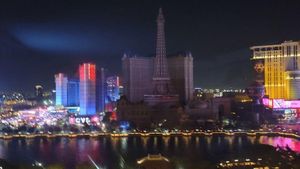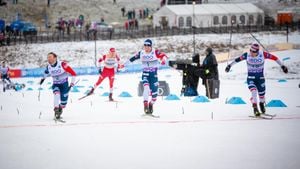Beniamino Zuncheddu, a man who suffered one of the gravest miscarriages of justice in Italy, is finally starting to rebuild his life after spending 33 years behind bars for crimes he did not commit. His case, linked to the tragic Sinnai massacre of 1980, has drawn significant attention—yet Zuncheddu feels neglected by the very society he fought to return to. "I am a pensioner without a pension, and though Giorgia Meloni welcomed Chico Forti back from America, I didn’t even receive a letter," Zuncheddu noted, highlighting the stark disparity between his ordeal and other celebrated cases of injustice.
Zuncheddu returned to freedom just over one year ago after the Italian court decided to suspend his sentence. This marked the end of over three decades spent under the oppressive weight of incarceration, unjustly convicted of murder. Reflecting on his release, he recalled, “I was coming back from work when I was told to pack my things. I thought it was a joke at first.” The emotional turmoil of the moment was palpable, as he exited prison not only without a family to welcome him back but also burdened by unanswered questions about his past and future.
Living now in Burcei, Sardinia, Zuncheddu has started to regain his health, putting on at least ten kilos and receiving treatment for cataracts and dental issues—he had only one tooth left upon his release. His sister, Augusta, and her husband have been pivotal during this transition, providing him with the support he desperately needed. He candidly shared, "Without them, I might have become just another delinquent after my release; I had nothing." Their unwavering belief in his innocence kept his spirit alive during the dark years of imprisonment.
Despite his struggles, Zuncheddu tries to embrace life outside prison walls. He spends his days helping his brother tend sheep and enjoys small pleasures like visiting his long-time friends, who, unlike him, have built families of their own. The pain of unfulfilled dreams echoes through his voice when he reflects on what could have been: “I wished for children and grandchildren, but it’s too late for me.”
While Zuncheddu anticipates financial reparations for his wrongful imprisonment, he emphasizes no amount of money can compensate for the decades he lost. His priorities are clear—first, he intends to settle his debts, chiefly owed to his pro bono lawyer, Mauro Trogu, who tirelessly fought for his freedom. He expressed gratitude, and though he knows compensation is forthcoming, it feels insufficient. "I have lived more years inside than outside this prison," he said with resignation.
His perspective on the judicial system remains bitter. The recent rejection of his correction request from the Rome judges has propelled his legal team to appeal to the European Court of Human Rights. Zuncheddu firmly believes the Italian court's reasoning undermines his claim of innocence, describing it as feeling “innocent halfway.” Struggling with how he was falsely accused, he mused on the nature of guilt and justice, expressing how his innocence was overshadowed by systematic failings.
Reflecting on the relationships severed by the judicial error, Zuncheddu has not reconnected with key figures linked to his case. He has not seen Luigi Pinna—the survivor of the massacre whose false testimony led to his condemnation—nor Mario Uda, the police officer involved. The lack of closure gnaws at him, reinforcing how isolated he feels. Yet he finds solace and encouragement from the community, from children writing him letters of support to local officials expressing their solidarity.
Despite the emotional scars, Zuncheddu tries not to dwell on negative feelings, reminding himself, “If I pound my head against the wall, the wall won’t change.” His faith contributed significantly to his endurance through years of struggle, forging connections even within prison to help others break free from addiction.
His experiences have led to the publication of his memoir, Io sono innocente, co-authored with Trogu, which recounts not only his trials but also the relentless efforts of those who supported him. He also shares news of potential plans for a film based on his ordeal. "I hope the actor can speak with a Sardinian accent," he added, half-jokingly.
With each passing day, Zuncheddu works to carve out a future, maintaining his simple dreams like opening a local dairy to provide jobs for young people. Even though the scars of injustice run deep, he embodies resilience. The reality of transitioning from prison to freedom is not without its complications, but Beniamino Zuncheddu continues to hope and strive toward the possibilities of new beginnings amid the shadows of his past.



